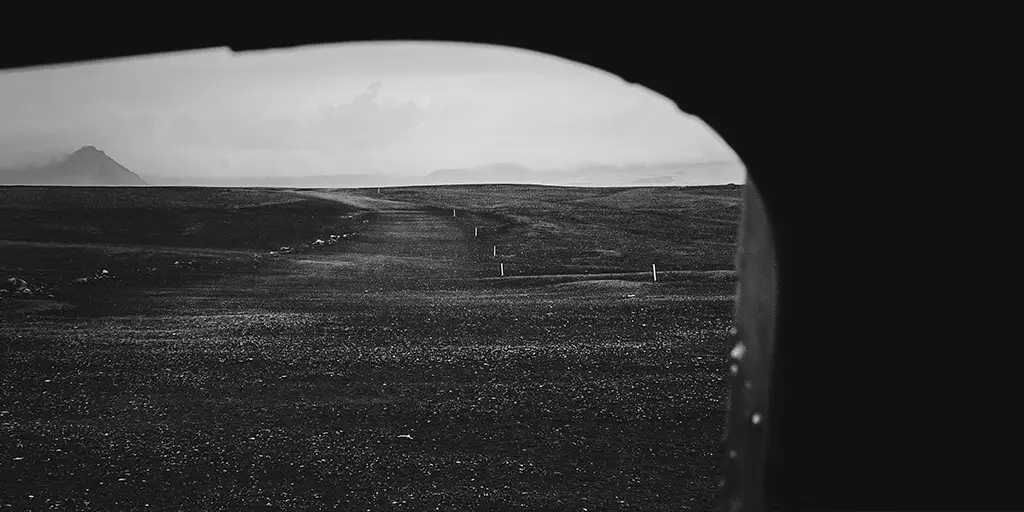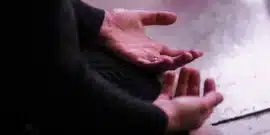Can God Be Trusted When Your World Falls Apart?

You may know the story. At the age of 17, Joni Eareckson dove into shallow water and broke her neck, leaving her a quadriplegic. Where was God? Had He deserted her? Let’s ask her.
Dr. John Ankerberg: Joni, I want you to give the audience a little bit of background of what happened to you. Because at 17 you were a beautiful vivacious girl. What happened? And then I want you to talk specifically to people that are in so much pain. I asked some of my staff members to ask some of their mates that are in great pain, “Give me four questions for my guests for this program on suffering and pain and what God can do for you.” The four questions were this:
- When does that pain stop?
- When does the pain stop?
- When does the pain stop?
- When does the pain stop?
That’s the only thing they wanted to know.
There are some people that do not want to hear anything from God that is beyond their suffering, okay? You were there for two years. You didn’t want anybody to talk to you about Bible verses, okay? So, give me the background. Start with what happened, give me that story, and then a word to those people that are saying, “You know, I don’t really care what you say.”
Joni Eareckson Tada: Well, I was an athletic young active teenager and did reckless things when I would get into athletics. And took a stupid dive into what was really very shallow water, thinking I would come up out of the pike dive. But I did not. And my head hit the bottom of a sand bar. It snapped my skull back and crunched my vertebrae and severed my spinal cord. And I’m lying face down in the water totally paralyzed. And thankfully my sister who was in the water with me happened to see that I was floating face down. Ironically enough I had just colored my hair the night before with peroxide, and she could see my blond hair floating on the surface of the water. That captured her attention, and she quickly came, rescued me, pulled me up out of the water. I’m spitting, I’m sputtering, I’m gasping for breath.
They take me to the hospital; they rip off my swimsuit; they drive bolts into my skull; they put me in traction on a long canvas sandwich, a Stryker frame. And all this is happening in a whirlwind of speed. And suddenly, when the doctors told me, “Joni, you’ve severed your spinal cord; you’re never going to use your hands again; and you’re never going to walk,” I plummeted into depression. I couldn’t even compute what it meant never to be able to walk again, never to be able to hold a Coca Cola or brush my hair or my teeth, or…. I was overwhelmed. And this kind of suicidal despair really gripped me. I would lie in bed at night wrenching my head back and forth on the pillow hoping to break my neck up at some higher level and so thereby kill myself. But I was afraid to do that because then I’d only be worse. And I felt so alone.
And I desperately wanted to believe God, but if He was the God that He made Himself out to be in the Bible, then somehow, some way, He had a hand in this. And how could He be trusted if He had a hand in it?
But one night, John, I was feeling so overwhelmed and so lonely, so desperately alone in my pain and in my despair. For some reason I started imagining this Jesus that Michael was speaking about. I pictured Him walking through the door of my hospital room, past my roommates who were all sleeping. I pictured Him coming up to the edge of my hospital bed. I imagined Him—I didn’t see Him, I just imagined Him—taking the guard rail and gently clunk, clunk, lowering it. And then sitting on the edge of my hospital mattress and brushing my hair out of my eyes. And then showing me His handprint, His palm, and saying to me gently, “Joni, if I loved you enough to die for you, don’t you think I can be trusted even with this?”
And that, to me, epitomized what you two were talking about a moment ago from Hebrews 4. I had a high priest. I had a God. The God of the Bible wasn’t some meditating mystic of a guru of a god on some far-off mountain top contemplating his naval, twiddling his thumbs, staying at some arm’s length distance from me and my pain. No, He got right down into the depths of my pain. And I began to see that night that Jesus goes where nobody else goes. He goes where no doctor goes. He goes where no counselor goes. He goes where no medication goes. And if you, if I, would but open my heart to Him and let Him in, I would begin to see His plan and purpose for my life. And it didn’t happen overnight, not with a snap of a finger. But that night that I imagined Him visiting me and saying, “Joni, I can be trusted,” that was a step in the right direction.
Dr. John Ankerberg: You’ve given us two pictures. Describe the first one.
Joni Eareckson Tada: Well, this right here is a copy of a charcoal sketch that I did when I was in the hospital. I learned how to hold charcoal pencils between my teeth and write and sketch and draw. I was a bit of an artist before my accident, and when I drew this ghoulish picture, a picture of deep anguish, what I wanted to convey was, “Oh, God, this is now my life? This is what I’m going to have to live with for the rest of my life? I can’t do this. I can’t; it’s impossible.” And I know what I’m saying resonates with so many of our viewers who are in that same pit of despair, “Oh, God, this is now my life?” You have a brain injury, perhaps a deep loneliness, a mental illness, maybe a child born with severe disabilities, or your husband leaves you, or you get a bad medical report that’s game-changing, and life-altering, and you think, “This is now my life? I can’t do this.” And I just want our viewers to know that Michael and I have said the same thing. In fact, I said the same thing this morning when I got up, “Oh, Jesus, I can’t do this.” BUT, and this is what I love about the Bible, it’s always so full of hope. And there are all kinds of anchors of hope to hold on to. And the one I held on to this morning was, BUT, “I can do all things through Christ who strengthens me,” Philippians 4:13. I can’t do this, but I can do all things through Christ.
Dr. John Ankerberg: That picture is going to haunt me forever. What was the second picture about?
Joni Eareckson Tada: Well, this second picture… I did not draw this particular one, a friend of mine drew it of me when I got out of the hospital. And when he saw me piecing together the puzzle of my life, he wanted to convey, “Joni, I know you want your life to fit, be tidy, neat, orderly. I know you want everything to be logical. I know you want your life to make sense. But you know what, a lot of puzzle pieces are going to go missing, and you’re not going to find them until the other side of eternity.” And when I saw this sketch that my friend did of me, my first thought was, well then, wisdom is not being able to put all of the puzzle pieces together as to why God allowed this to happen. Wisdom is trusting God even when most of the puzzle pieces go missing; even when you know that on this side of eternity your life is not going to make sense. But it will on the other side. And that hope is what keeps me going. To know that one day God’s going to give me the key that will unlock sense out of my seemingly senseless quadriplegia. And I can’t wait for that day. I’m looking forward to it.
Excerpted from our series, “Where is God When Life Hurts?” Edited for publication. See complete series in our online store at jashow.org.







